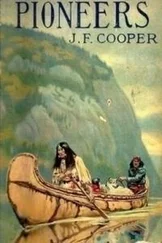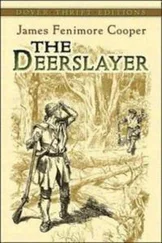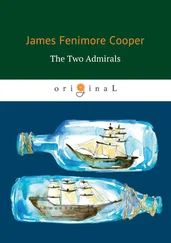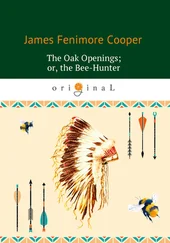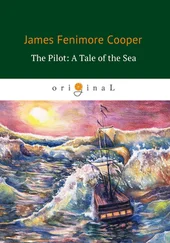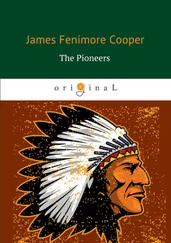The Prairie
James Fenimore Cooper
"The Prairie" was the third in order of Fenimore Cooper's Leatherstocking Tales. Its first appearance was in the year 1827. The idea of the story had suggested itself to him, we are told, before he had finished its immediate forerunner, "The Last of the Mohicans." He chose entirely new scenes for it, "resolved to cross the Mississippi and wander over the desolate wastes of the remote Western prairies." He had been taking every chance that came of making a personal acquaintance with the Indian chiefs of the western tribes who were to be encountered about this period on their way in the frequent Indian embassies to Washington. "He saw much to command his admiration," says Mrs. Cooper, "in these wild braves…It was a matter of course that in drawing Indian character he should dwell on the better traits of the picture, rather than on the coarser and more revolting though more common points. Like West, he could see the Apollo in the young Mohawk."
When in July, 1826, Cooper landed in England with his wife and family, he carried his Indian memories and associations with him. They crossed to France, and ascended the Seine by steamboat, and then settled for a time in Paris. Of their quarters there in the Rue St. Maur, Sarah Fenimore Cooper writes:
"It was thoroughly French in character. There was a short, narrow, gloomy lane or street, shut in between lofty dwelling houses, the lane often dark, always filthy, without sidewalks, a gutter running through the centre, over which, suspended from a rope, hung a dim oil lamp or two—such was the Rue St. Maur, in the Faubourg St. Germain. It was a gloomy approach certainly. But a tall porte cochere opened, and suddenly the whole scene changed. Within those high walls, so forbidding in aspect, there lay charming gardens, gay with parterres of flowers, and shaded by noble trees, not only those belonging to the house itself, but those of other adjoining dwellings of the same character—one looked over park–like grounds covering some acres. The hotel itself, standing on the street, was old, and built on a grand scale; it had been the home of a French ducal family in the time of Louis XIV. The rooms on the two lower floors were imposing and spacious; with ceilings of great height, gilded wainscoting and various quaint little medallion pictures of shepherds and shepherdesses, and other fancies of the time of Madame de Sevigne. Those little shepherds were supposed to have looked down upon la mere beaute , and upon la plus jolie fille de France as she danced her incomparable minuets. Those grand saloons were now devoted to the humble service of a school for young ladies. But on the third floor, to which one ascended by a fine stone stairway, broad and easy, with elaborate iron railings, there was a more simple set of rooms, comfortably furnished, where the American family were pleasantly provided for, in a home of their own. Unwilling to separate from his children, who were placed at the school, the traveller adopted this plan that he might be near them. One of the rooms, overlooking the garden, and opening on a small terrace, became his study. He was soon at work. In his writing–desk lay some chapters of a new novel. The MS. had crossed the ocean with him, though but little had been added to its pages during the wanderings of the English and French journeys."
When, some months later, the story appeared, its effect was immediate on both sides the Atlantic. It is worth note that during his French visit Cooper met Sir Walter Scott. Cooper was born at Burlington, New Jersey, 15th Sept., 1789, and died at Cooperstown, New York (which took its name from his father), 14th Sept., 1851.
The following is his literary record:
Precaution, 1820; The Spy, 1821; The Pioneers, 1823; The Pilot, 1823; Lionel Lincoln, or the Leaguer of Boston, 1825; The Last of the Mohicans, 1826; The Prairie, 1827; The Red Rover, 1828; Notions of the Americans, 1828; The Wept of Wish–ton–Wish, 1829; The Water–witch, 1830; The Bravo, 1831; The Heidenmauer, or the Benedictines, 1832; The Headsman, 1833; A Letter to his Countrymen, 1834; The Monikins, 1835; Sketches of Switzerland, 1836; Gleanings in Europe: 1837; (England) 1837; (Italy) 1838; The American Democrat, 1838; Homeward Bound, 1838; The Chronicles of Cooperstown, 1838; Home as Found (Eve Effingham), 1839; History of the U. S. Navy, 1839; The Pathfinder, or the Inland Sea, 1840; Mercedes of Castile, 1841; The Deerslayer, or the First Warpath, 1841; The Two Admirals, 1842; The Wing–and–Wing (Jack o Lantern), 1842; The Battle of Lake Erie, or Answers to Messrs. Burges, Duer and Mackenzie, 1843; The French Governess; or, The Embroidered Handkerchief, 1843; Richard Dale, 1843; Wyandotte, 1843; Ned Myers, or Life before the Mast, 1843; Afloat and Ashore (Miles Wallingford, Lucy Hardinge), two series, 1844; Proceedings of the Naval Court–Martial in the Case of Alexander Slidell Mackenzie, etc., 1844; Santanstoe, 1845; The Chainbearer, 1846; Lives of Distinguished American Naval Officers, 1846; The Red Skins, 1846; The Crater (Marks Reef), 1847; Captain Spike, or the Islets of the Gulf, 1848; Jack Tier, or the Florida Reefs, 1848; The Oak Openings, or the Bee–Hunter, 1848; The Sea Lions, 1849; The Ways of the Hour, 1850.
Ernest Rhys 1907
The geological formation of that portion of the American Union, which lies between the Alleghanies and the Rocky Mountains, has given rise to many ingenious theories. Virtually, the whole of this immense region is a plain. For a distance extending nearly 1500 miles east and west, and 600 north and south, there is scarcely an elevation worthy to be called a mountain. Even hills are not common; though a good deal of the face of the country has more or less of that "rolling" character, which is described in the opening pages of this work.
There is much reason to believe, that the territory which now composes Ohio, Illinois, Indiana, Michigan, and a large portion of the country west of the Mississippi, lay formerly under water. The soil of all the former states has the appearance of an alluvial deposit; and isolated rocks have been found, of a nature and in situations which render it difficult to refute the opinion that they have been transferred to their present beds by floating ice. This theory assumes that the Great Lakes were the deep pools of one immense body of fresh water, which lay too low to be drained by the irruption that laid bare the land.
It will be remembered that the French, when masters of the Canadas and Louisiana, claimed the whole of the territory in question. Their hunters and advanced troops held the first communications with the savage occupants, and the earliest written accounts we possess of these vast regions, are from the pens of their missionaries. Many French words have, consequently, become of local use in this quarter of America, and not a few names given in that language have been perpetuated. When the adventurers, who first penetrated these wilds, met, in the centre of the forests, immense plains, covered with rich verdure or rank grasses, they naturally gave them the appellation of meadows. As the English succeeded the French, and found a peculiarity of nature, differing from all they had yet seen on the continent, already distinguished by a word that did not express any thing in their own language, they left these natural meadows in possession of their title of convention. In this manner has the word "Prairie" been adopted into the English tongue.
The American prairies are of two kinds. Those which lie east of the Mississippi are comparatively small, are exceedingly fertile, and are always surrounded by forests. They are susceptible of high cultivation, and are fast becoming settled. They abound in Ohio, Michigan, Illinois, and Indiana. They labour under the disadvantages of a scarcity of wood and water,—evils of a serious character, until art has had time to supply the deficiencies of nature. As coal is said to abound in all that region, and wells are generally successful, the enterprise of the emigrants is gradually prevailing against these difficulties.
Читать дальше
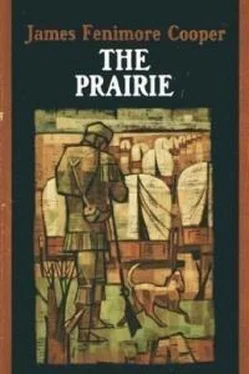

![Джеймс Купер - Пионеры, или У истоков Саскуиханны [The Pioneers, or The sources of the Susquehannah]](/books/395797/dzhejms-kuper-pionery-ili-u-istokov-saskuihanny-t-thumb.webp)
![Джеймс Купер - Последний из могикан, или Повествование о 1757 годе [The Last Of The Mohicans]](/books/397341/dzhejms-kuper-poslednij-iz-mogikan-ili-povestvovan-thumb.webp)
![Джеймс Купер - Зверобой, или Первая тропа войны [The Deerslayer, or The First Warpath]](/books/398571/dzhejms-kuper-zveroboj-ili-pervaya-tropa-vojny-the-thumb.webp)
